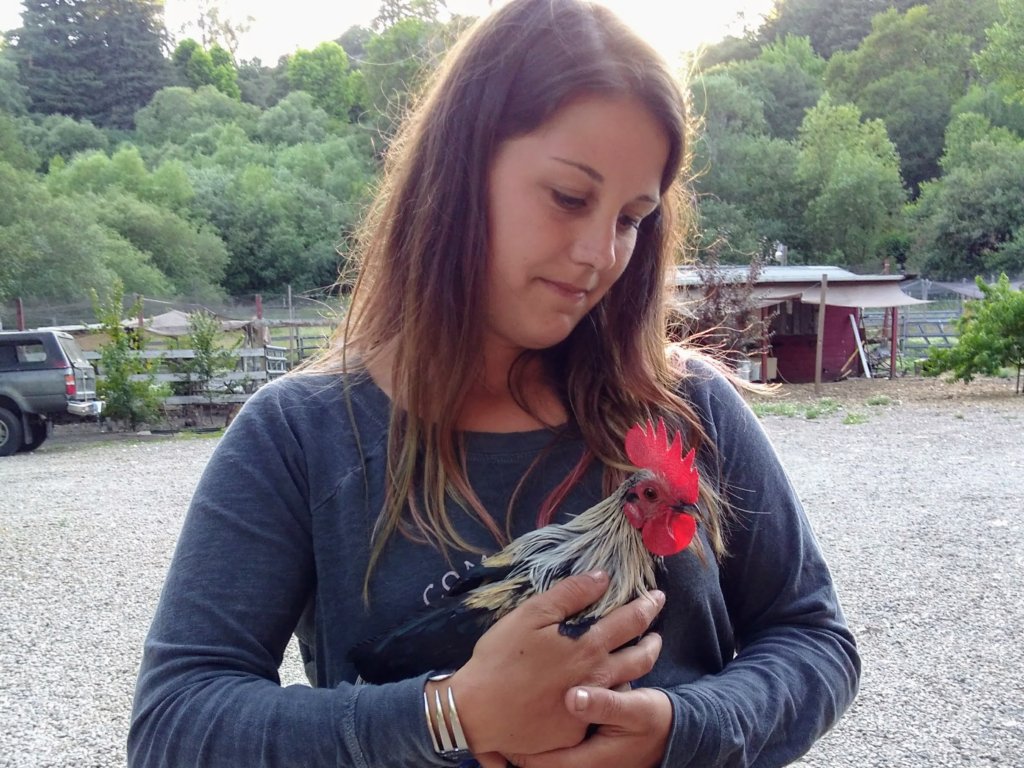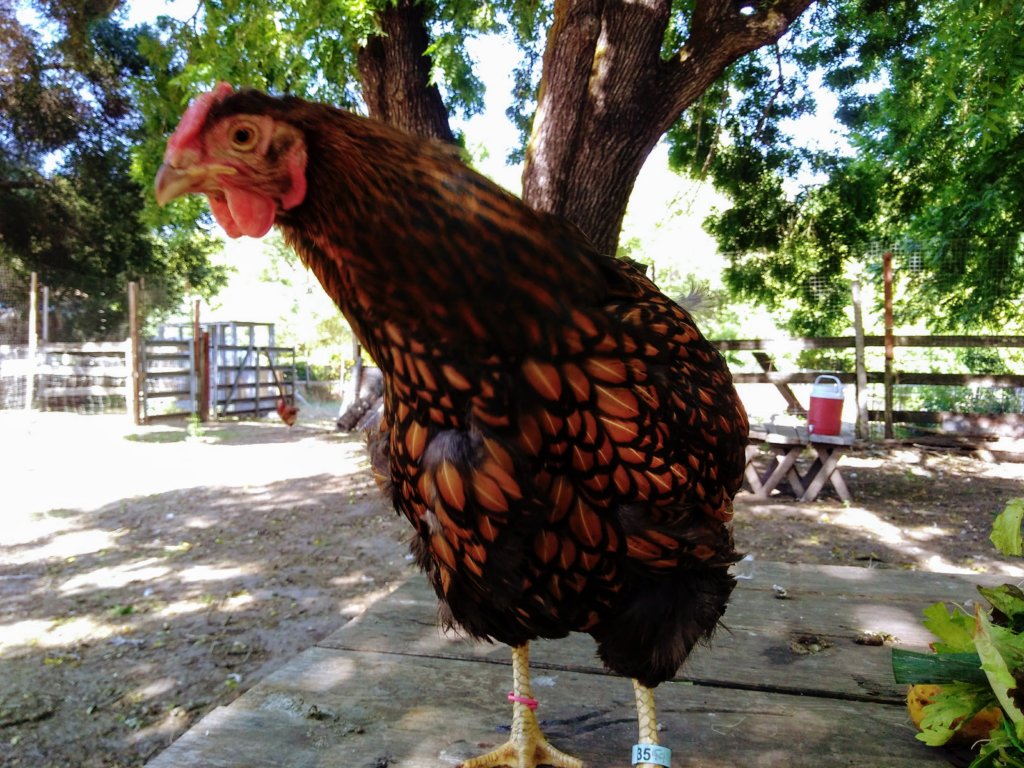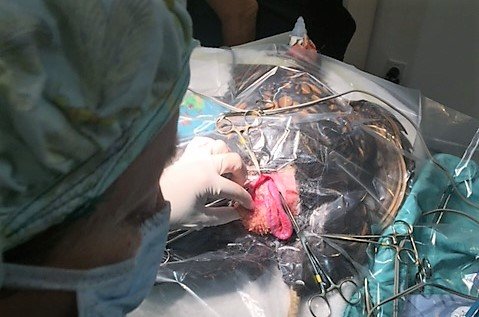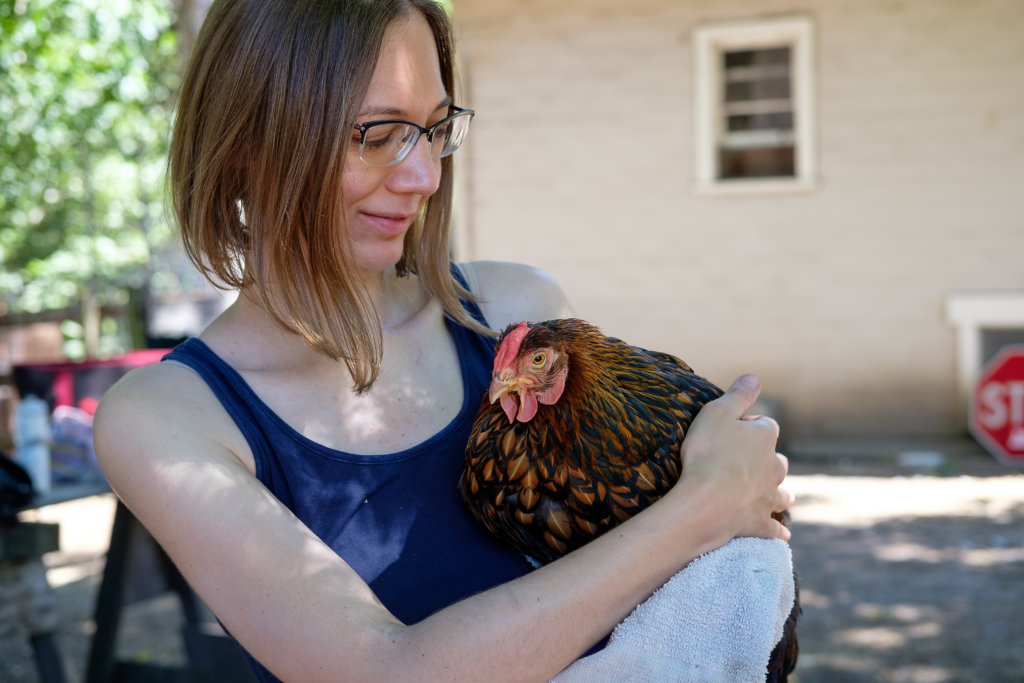By Ariana Huemer | Project Leader
The Year of the (Unwanted) Roosters
"We have four roosters ... We got them when they were just babies, six of them to be exact and then four of them turned out to be roosters ... We don't want to kill them and our neighbors don't like them and keep giving us noise complaints."
The five more identically themed "take my rooster or he dies" emails signal the start of rooster-dumping season. Each message segues into a tale a backyard chicken keeper who -- much to their surprise -- found one (or more) of their feed-store chicks has matured into a rooster!
But we are not surprised. Ten percent of all chicks marketed as future laying hens turn out to be roosters -- a fact that few chick-purchasers consider (or even know about) until four months down the line, when the endearing peep-peeps have given way to a full-blown early morning crow.
When there are no takers to be found, most unwanted roosters wind up dead -- either butchered by their former caretakers or abandoned at a nearby park/neighborhood/or country road, where they quickly perish. More often than not, when we respond to a report of an abandoned bird, we find the remains of his flockmate(s) as well.
Adopt Don't Shop
Since no animal sanctuary could possibly take in all the unwanted roosters generated by the backyard chicken industry, we've expanded our original Rooster Retention program to include an aggressive rehoming component, pushing the notion that domesticated poultry are companion animals rather than simply units of production.
In urging backyard poultry keepers to "Adopt Don't Shop" for their next chicken companions, we pair up formerly abandoned roosters with hens rescued from the egg industry for prospective adopters. It's a win/win situation for all: Approved adopters get a ready-made, healthy flock with a gallant rooster guardian, while scores of beautiful birds who would have otherwise died never knowing a day's comfort get a new lease on life!
Adopters express immense satisfacton from watching their formerly abused avian charges blossom into companions with character. Now among the never-ending roster of rooster-themed emails, occasionally a message of a different flavor rolls in:
"Charlie is the sweetest rooster. He makes sure all his girls go in the coop before him for the night. When they sleep on top of the coop, they nestle under him and he drapes his wings over them. He's like a protective momma. Our original hen Chicki Minaj is greatly appreciating her new company."
Now that's something to crow about! .
Scallops' Surgery Chronicles
Part of establishing chickens as companion animals is normalizing the concept of veterinary care for them, and we're happy to work alongside poultrydvm.com to promote it!
Vets are seeing more chicken clients alongside their regular roster of traditional house pets, and reproductive disease (owing to genetic selection for extreme laying) is a constant hen-health issue. One renowned avian veterinarian reports that his hands-on lab in avian reproductive surgery is by far his most popular class at annual veterinary conferences.
That's exactly what Scallops, one of Hen Harbor's oldest residents, went up against recently -- an intense, invasive surgery to remove a big glob of impacted egg material from her oviduct -- as well as (hopefully) the oviduct itself (essentially a chicken "spay") to prevent the problem from reocurring.
By now, we've seen dozens of our hens through these surgeries, and despite the inherent perils of anesthesia in birds, the success rate has been great! Although Scallops' condition was a little touch-and-go during her surgery, she made it through and the next day was behaving like a brand-new bird. Phew!
Chronicling her progress, pre- and post-surgery, on social media -- as well as a feature story on poultrydvm.com -- was important both to those who donated toward Scallops' surgery with an interest in her well-being, as well as those who may be interested (and thankful!) to know that times are changing, people genuinely love their chickens as companions, and the options for veterinary care are varied and many!
"I want to thank you for helping my girl out," writes one kind-hearted chicken fan. "I know of people who would have just given up and culled their hen without a blink. As you now know, I would never have done that. All of my hens are dear to my heart. There is (almost) always a way to heal a hurting hen. Your help kept CreamPuff alive and I am truly grateful. Now she is on her way to recovery."
And with that, we have good reason to continue to forge ahead with hopeful hearts. :
Links:
By Ariana Huemer | Project Leader
By Ariana Huemer | Project Leader
Project reports on GlobalGiving are posted directly to globalgiving.org by Project Leaders as they are completed, generally every 3-4 months. To protect the integrity of these documents, GlobalGiving does not alter them; therefore you may find some language or formatting issues.
If you donate to this project or have donated to this project, you can receive an email when this project posts a report. You can also subscribe for reports without donating.





